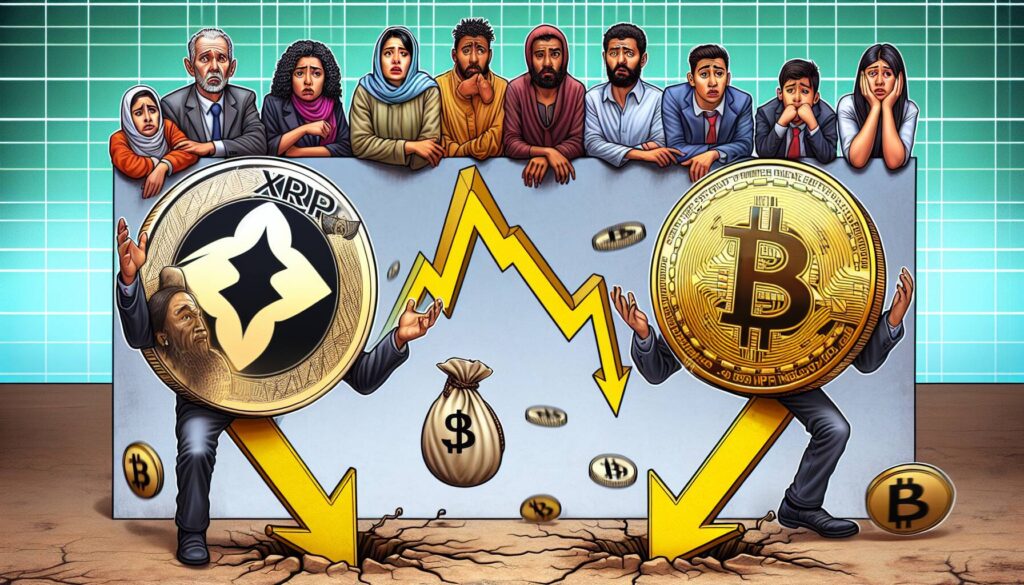In a significant appeal to the Securities and Exchange Commission (SEC), a bipartisan group of U.S. senators has advocated for the inclusion of staking in cryptocurrency exchange-traded funds (ETFs). This proposal came to light in a letter sent to the SEC on Thursday, highlighting the growing interest in the staking mechanism, which allows investors to lock up their digital tokens to help secure blockchain networks in return for rewards.
Despite initial plans from crypto ETF issuers to incorporate staking into their offerings, prior SEC leadership, particularly under Chairman Gary Gensler, had raised concerns. In fact, the agency’s previous stance had led to enforcement actions against major firms, including Kraken, challenging the notion that staking could be classified as an unregistered securities offering.
“We encourage the SEC to consider the potential benefit to investors from allowing protocol staking in certain digital asset exchange-traded products,” read the letter addressed to SEC Acting Chairman Mark Uyeda.
With the backing of senators like Cynthia Lummis, the Republican chair of a Senate subcommittee focused on digital assets, and support from fellow Republicans and prominent Democrats like Kirsten Gillibrand and Ron Wyden, the letter represents a notable shift in the political landscape surrounding digital assets. Proponents argue that staking is essential for the security and functionality of blockchain platforms, notably Ethereum, which relies on this practice to maintain its ecosystem.
The push for clearer regulations around staking reflects a broader effort among lawmakers to foster innovation in the crypto space while ensuring investor protection. As discussions around this issue progress, the future of staking in cryptocurrency ETFs could influence both regulatory frameworks and market dynamics significantly.

Staking in Crypto ETFs: A Call for SEC Reconsideration
The recent letter from a bipartisan group of U.S. senators to the SEC highlights the potential for staking in cryptocurrency exchange-traded funds (ETFs). Here are the key points from the discussion:
- Bipartisan Support for Staking:
- The letter includes signatures from both Republican and Democratic senators, demonstrating a united front.
- Key figures include Cynthia Lummis, Kirsten Gillibrand, and Ron Wyden, emphasizing the growing interest in crypto regulation across party lines.
- Historical SEC Resistance:
- The SEC previously rejected staking in ETFs, considering it as potentially constituting unregistered securities offerings.
- Prior enforcement actions have created an atmosphere of uncertainty for crypto firms looking to innovate.
- Importance of Staking for Blockchain Ecosystems:
- Staking plays a critical role in securing blockchain networks like Ethereum, which supports transactions and operations.
- In return for locking up tokens, users can earn rewards, creating a potential income stream for investors.
- Call to Action for the SEC:
- The senators urge the SEC to reconsider the stance to allow staking in digital asset ETFs, which could benefit investors significantly.
- Adopting staking could enhance the attractiveness and functionality of crypto ETFs, making them more appealing to a wider range of investors.
“We encourage the SEC to consider the potential benefit to investors from allowing protocol staking in certain digital asset exchange-traded products.”
Staking in Crypto ETFs: A New Frontier in Digital Asset Investment
The debate surrounding staking in cryptocurrency exchange-traded funds (ETFs) has reached a fever pitch, particularly following the recent bipartisan letter to the SEC. This push from a diverse group of U.S. senators highlights a remarkable shift in the regulatory landscape and introduces several competitive dynamics within the digital asset market. On one hand, the potential inclusion of staking could significantly bolster ETF offerings, making them more attractive to a broader audience of investors seeking yield in an otherwise volatile market.
Competitive Advantages: Engaging in staking opens up new possibilities for ETF issuers, who can enhance their product by providing additional income streams for investors. The innovative aspect of staking not only aligns ETFs with the growing interest in decentralized finance (DeFi) but also allows them to tap into the additional layer of security that staking offers for blockchain networks like Ethereum. The bipartisan support from both sides of the aisle signals emerging consensus regarding the legitimacy and potential of digital assets, which could catalyze further institutional investment.
Moreover, the ability to stake could set forward-thinking ETFs apart from those that are purely passive, hence attracting conservative investors looking to earn rewards without directly navigating the complexities of cryptocurrency markets.
Competitive Disadvantages: However, the road ahead is not entirely clear. The previous stance of the SEC under Gary Gensler raised concerns over the regulatory implications of staking, labeling it as an unregistered securities offering. This looming apprehension could deter more risk-averse traditional investors who may be wary of entering a regulatory gray area. If the SEC adopts a cautious approach, it might stifle innovation within the ETF sector, benefiting established players while disadvantaging newcomers eager to capitalize on staking’s growth potential. Industry stakeholders could face an uphill battle in demonstrating compliance and transparency to appease the regulators.
This dynamic could benefit not only seasoned investors comfortable with hedge strategies but also crypto enthusiasts eager to blend staking opportunities with traditional investment vehicles. However, it might create hurdles for more conservative investors or those with limited exposure to the blockchain ecosystem, highlighting the need for educational initiatives to demystify staking’s mechanics.
Overall, as the SEC contemplates the regulatory framework, the interplay between innovation, compliance, and consumer education will ultimately shape the future landscape of crypto ETFs, making this a pivotal moment for digital assets.

















